Orphée
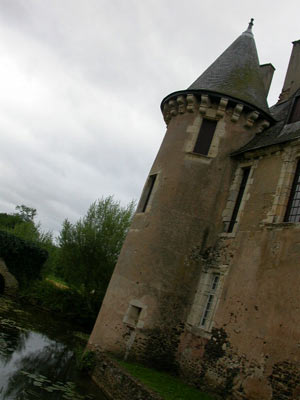
Last week-end, I attended a performance of Gluck's Orphée et Eurydice by Jérôme Correas and Les Paladins at the Château de Boucard, a Renaissance to XVIIth century building. There is no most wonderful experience than enjoying all the refinements of classical music in such a bucolic place.
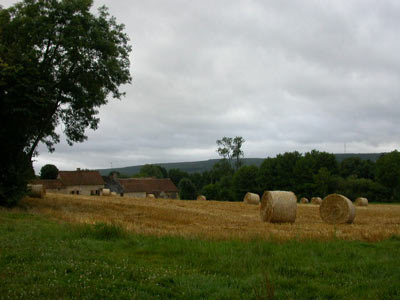
The contrast between this picture and the one below is... baroque,
and summarises well the experience.
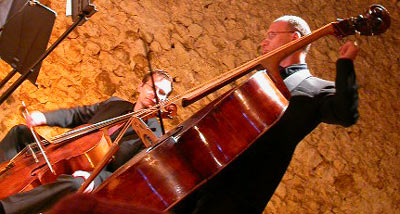
Given the size of the room and the tiny stage it was impossible to have a whole orchestra, so we had a transcription for chamber orchestra prepared by Jérôme Correas. That's the magic of the festivals, some artists come and perform and the year after they are back with some incredible concerts.
I was very curious about the experience, for I had attended the full performance by Minkowski and Les Musiciens du Louvre when they recorded it, and I was wondering how a chamber version, with 7 musicians instead of 35 and a small choir, would sound.
It worked rather well. Jérôme's version really gave us the feeling we were back in a 18th-century salon, listening to a private performance of the opera. The transcriptions were a very common way to enjoy the great works at that time, and they still are ! I had never thought I would hear Orphée call Eurydice in the middle of the Berry fields.
The performers were good and Jérôme Correas' direction very precise and lively.
I was very curious about the experience, for I had attended the full performance by Minkowski and Les Musiciens du Louvre when they recorded it, and I was wondering how a chamber version, with 7 musicians instead of 35 and a small choir, would sound.
It worked rather well. Jérôme's version really gave us the feeling we were back in a 18th-century salon, listening to a private performance of the opera. The transcriptions were a very common way to enjoy the great works at that time, and they still are ! I had never thought I would hear Orphée call Eurydice in the middle of the Berry fields.
The performers were good and Jérôme Correas' direction very precise and lively.
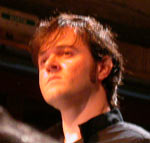
Jean-François Lombard was Orphée
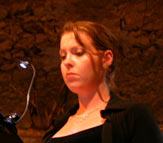
and Kareen Durand, Eurydice
Gluck's music is thrilling, especially in the tragic scenes but, as I spent part of July listening to Monteverdi's Orfeo, I found the decline in the operatic and artistical taste between Monterverdi and Gluck striking. When the version given by Monteverdi and his librettist Alessandro Striggio is strong with a genuine sense of sacred which can compare with the greek myths, the Gluck/Calzabigi's one is soppy and indulges in an easy sentimentality (happy end, happy arias and dances) that weakens the work.
Gluck was opening the door to the 19th century opera and its strange mixtures of beauty and vulgar.
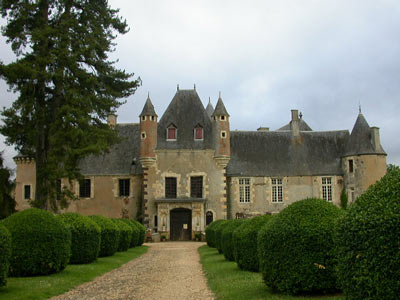
 17th & 18th-Century history, arts & music
17th & 18th-Century history, arts & music
0 Comments:
Post a Comment
<< Home